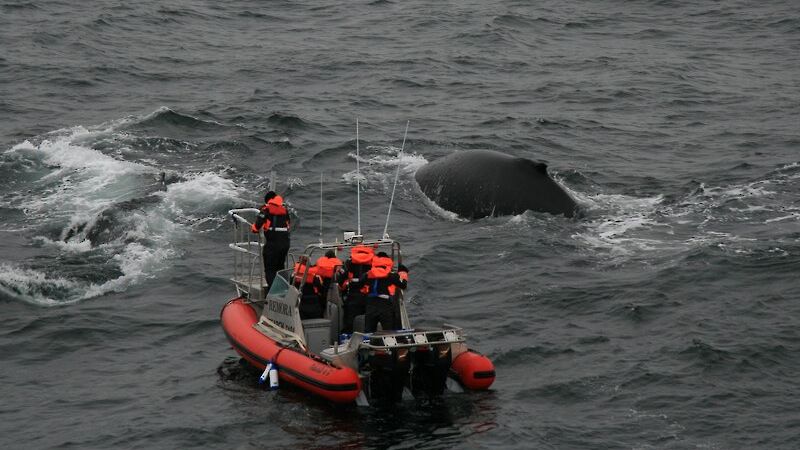Australian Minister for Environment Protection Peter Garrett and New Zealand Foreign Minister Murray McCully today released the preliminary results from a six-week joint Australian-New Zealand Antarctic Whale Expedition to the Southern Ocean earlier this year.
Unveiling the preliminary report at the International Whaling Commission meeting in Agadir, Minister Garrett highlighted the recording of a whale song which has for the first time been attributed to the Antarctic minke whale. They also highlighted the successful use of small vessels deployed from the New Zealand vessel, the RV Tangaroa.
“This non-lethal research was the first multilateral project undertaken as part of the Australian-initiated $14 million Southern Ocean Research Partnership”, Mr Garrett said.
“The team of 17 scientists from Australia, New Zealand and France gathered new information using cutting-edge, non-lethal techniques, in particular satellite tagging.
“The research was developed to address the most pressing conservation science issues for whales in the Southern Ocean and will improve our understanding of population structure, distribution, movement patterns, environmental linkages, and the ecological role of whales in the Southern Ocean”, Mr Garrett said.
Mr McCully said “New Zealand was delighted to provide a proportion of ship time and to collaborate with Australia on the first major SORP project. We look forward to further analysis of the data collected and in particular its contribution to our understanding of the migration routes of the great whales between Pacific Island breeding grounds and Southern Ocean feeding grounds”.
“The team also recorded what we believe to be vocalisations from the Antarctic minke whale, and also captured songs from humpback whales which previously have only been recorded in their breeding grounds”, Mr Garrett said.
“It is clear from the techniques employed during this voyage that it is possible to study whales, and collect relevant scientific data, without using lethal means”.
The preliminary scientific field report details the collection of 64 biopsy skin samples and satellite tagging of 30 humpback whales on the voyage.
The Australian Government has invested $32 million in non-lethal whale research including the Southern Ocean Research Partnership which is the largest endeavour of its kind in the world and Australia has extended an invitation for all member nations of the IWC to participate. New Zealand provided the RV Tangaroa for this voyage.
“As we unveil these important findings I again call on all member nations of the IWC to join us in our efforts to better understand whales and other cetaceans without killing them.”

